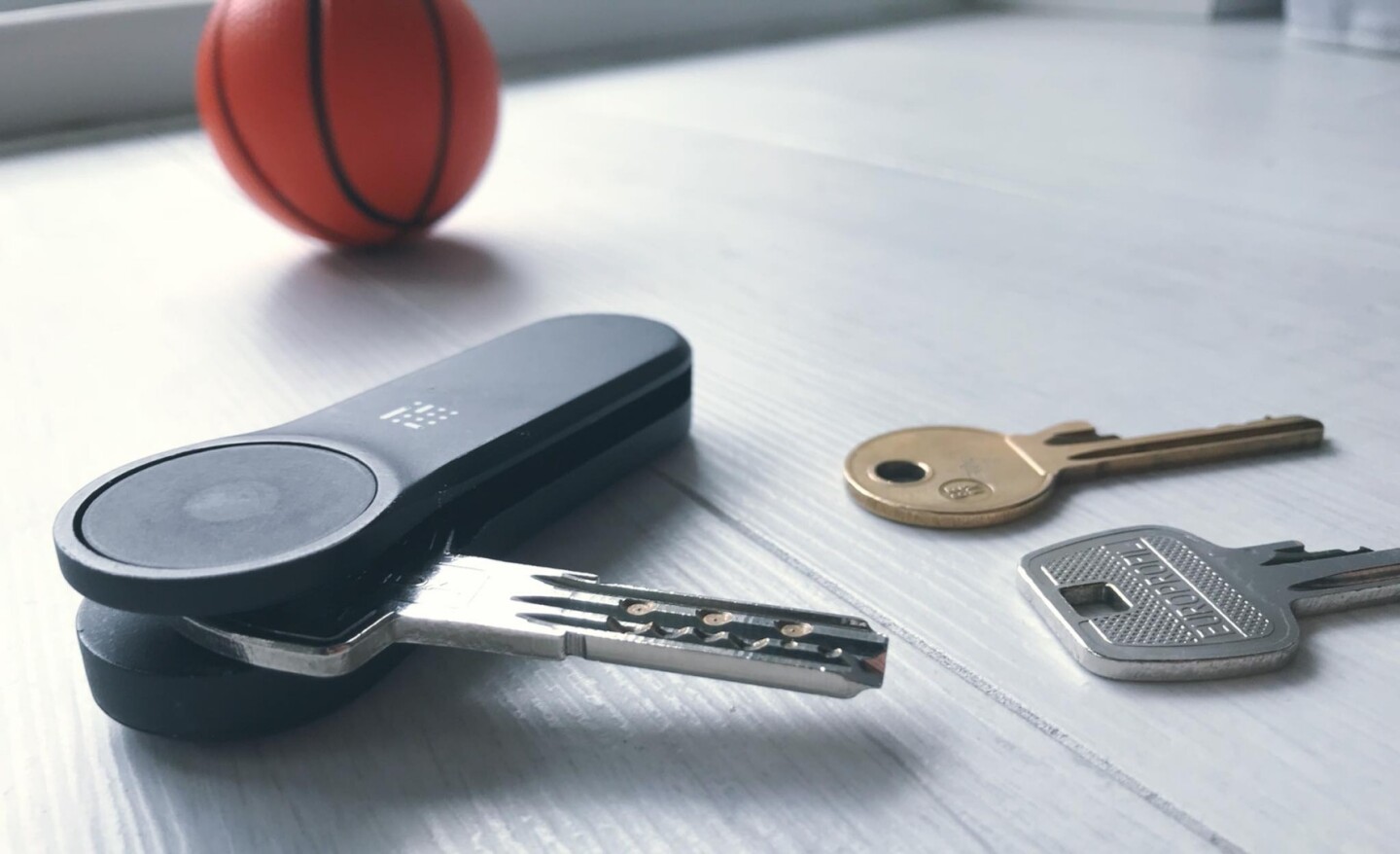We've been seeing quite a few "smart" door locks lately, that allow users to lock and unlock their door using a smartphone. Perhaps you don't want to replace your existing locks, though? Well, Locky offers some smart-lock features, but it's used to augment an existing old-school key.
Locky is basically an electronic fob, which is capable of clamping onto the base of a claimed 90 percent of regular door-lock keys. It's powered by a replaceable lithium coin cell battery, which should reportedly be good for up to 14 months of use.
Once the key is installed in the spring-loaded fob, it can subsequently be folded back inside the device when not in use, and deployed switchblade-style when needed. Flipping the key out also powers Locky up. An onboard 9-axis IMU (inertial measurement unit) then monitors how the device is being moved, detecting the telltale movements associated with turning the key in a lock.
Using Bluetooth, an integrated microprocessor transmits the IMU data to an iOS/Android app on the user's smartphone. Among other things, this allows them to later check if they remembered to lock their door upon leaving the house – that said, the app also uses the phone's GPS to determine if the user has left home without locking their door, and alerts them with a notification if they have.

If multiple smartphone-carrying family members are each using their own Locky-equipped key for access to one shared home, any one of those people can use the app to see a record of who has come and gone from the house, and at what times. This feature could allow still-at-work parents to confirm that their children have safely arrived home from school.
Additionally, if the user unthinkingly leaves their Locky/key in the lock upon getting home, an audible alarm built into the fob will sound when the distance between it and the phone exceeds a threshold distance. It's also possible to locate a misplaced key within the home, using the app to wirelessly trigger that alarm.
Should you be interested, Locky is currently the subject of a Kickstarter campaign. A pledge of US$39 will get you one – at half the planned retail price – when and if they reach production.
Source: Kickstarter






